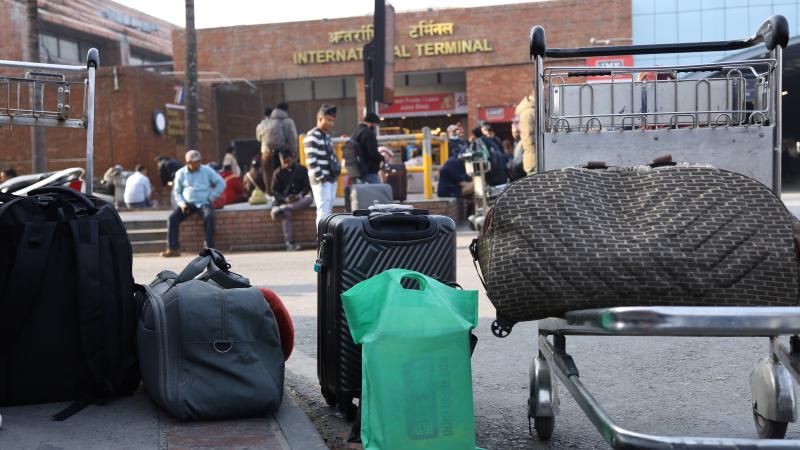Biden administration imposes new sanctions targeting Iran-backed Houthi network amid attacks
Sanctions aimed at the head of the Currency Exchanges Association in Yemen, along with three exchange houses in Yemen.
The U.S.Treasury Department has imposed new sanctions targeting the Iran-funded Houthi rebels in Yemen amid the ongoing attacks by the group against shipping and U.S. Navy vessels in the Red Sea.
Treasury announced Thursday that the sanctions were aimed at the head of the Currency Exchanges Association in Yemen, along with three exchange houses in Yemen and Turkey, for “facilitating the flow of Iranian assistance to Houthi forces and their destabilizing activities.”
Some experts called the move inadequate.
“The US Treasury Department’s newly announced sanctions are weak sauce, and it apparently comes instead of the Biden administration re-designating the Houthis as a foreign terrorist organization,” said Matthew RJ Brodsky, senior fellow at the Gold Institute for International Strategy.
“The latter would open up far more options to apply pressure. Team Biden seems too worried about maintaining its Iran-based fiction. Aside from re-listing the Houthis, Biden should be targeting the regime in Iran with maximum pressure.” Brodsky told The Foreign Desk.
According to a Department statement, the sanctioned persons have “facilitated the transfer of millions of dollars to the Houthis at the direction of US-designated Sa’id al-Jamal, who is affiliated with Iran’s Islamic Revolutionary Guard Corps-Qods Force (IRGC-QF).”
Treasury officials said the Houthi’s continued attacks in the Red Sea “sharply curtailed the free flow of commerce through the region and represents a clear violation of international law.”
Under Secretary of the Treasury for Terrorism and Financial Intelligence, Brian E. Nelson told reporters that the recent sanctions underscore the administration’s resolve to “restrict the illicit flow of funds to the Houthis, who continue to conduct dangerous attacks on international shipping and risk further destabilizing the region.” Nelson adds that the US and its allies will continue to target such financial networks and Iranian supporters that enable the Houthi’s activities.
The Treasury’s actions come as the Biden administration National Security Council spokesman John Kirby told reporters the White House was re-considering designating the Houthis as a terrorist organization on the State Department’s Foreign Terrorist Organization (FTO) List in November.
During the administration’s first year, the President and his team de-listed the Houthis, sparking concerns among Arab allies and Israel.
According to Brodsky, Biden’s reluctance to engage in a kinetic response is “more likely to widen the conflict, which he claims he wants to avoid.” “I believe the time for half-measures has long passed,” he said.
Following the Oct. 7 terrorist attack in Israel by the terror group Hamas, the Islamic Republic has called on its terrorist proxies to attack Israeli and American forces.
In Yemen, the Houthis have launched missile projectiles against naval vessels to curb Israeli airstrikes and ground attacks in Gaza. Iranian-backed terrorist groups in Iraq, Syria, and Lebanon have launched attacks on American forces in the Middle East following the war’s outbreak.















